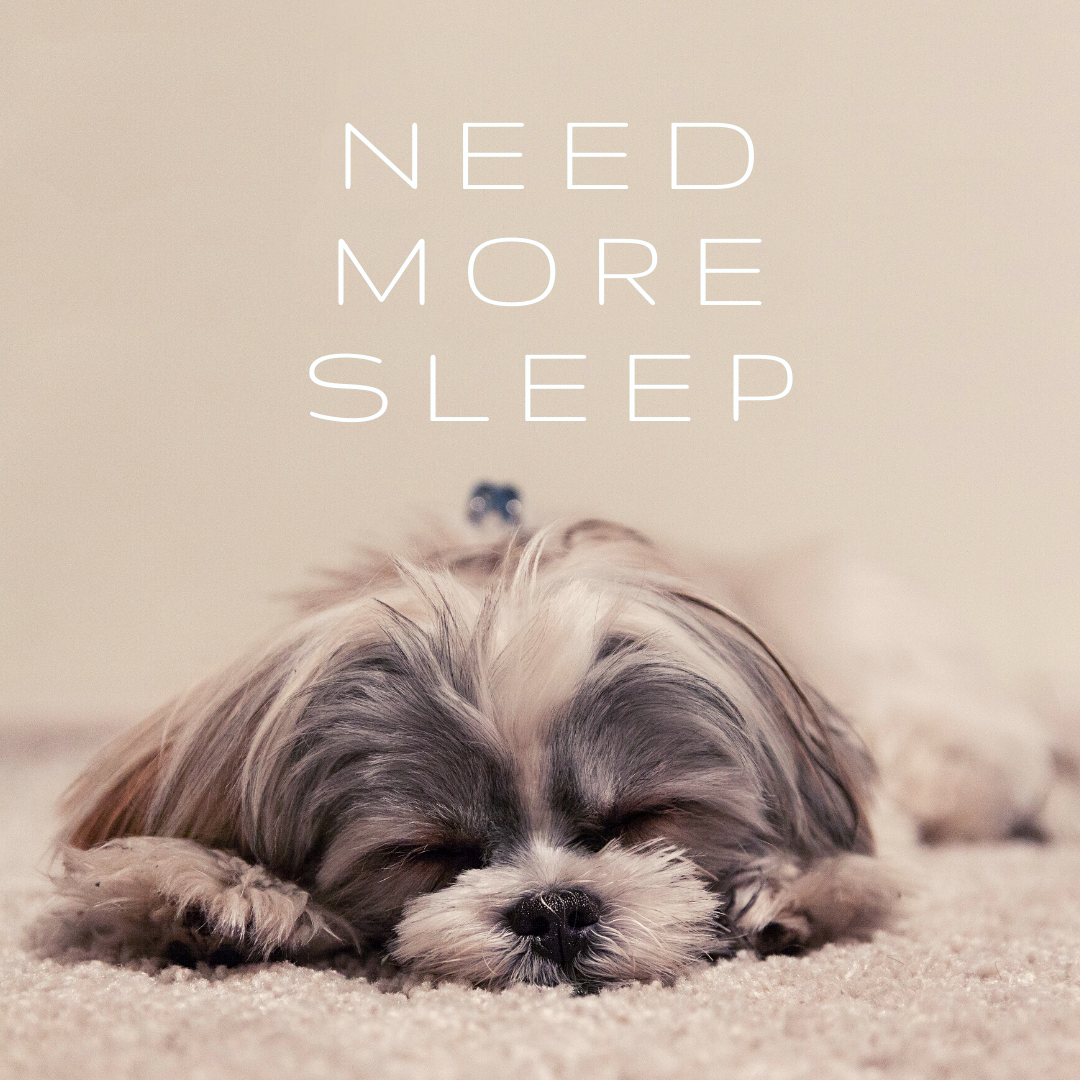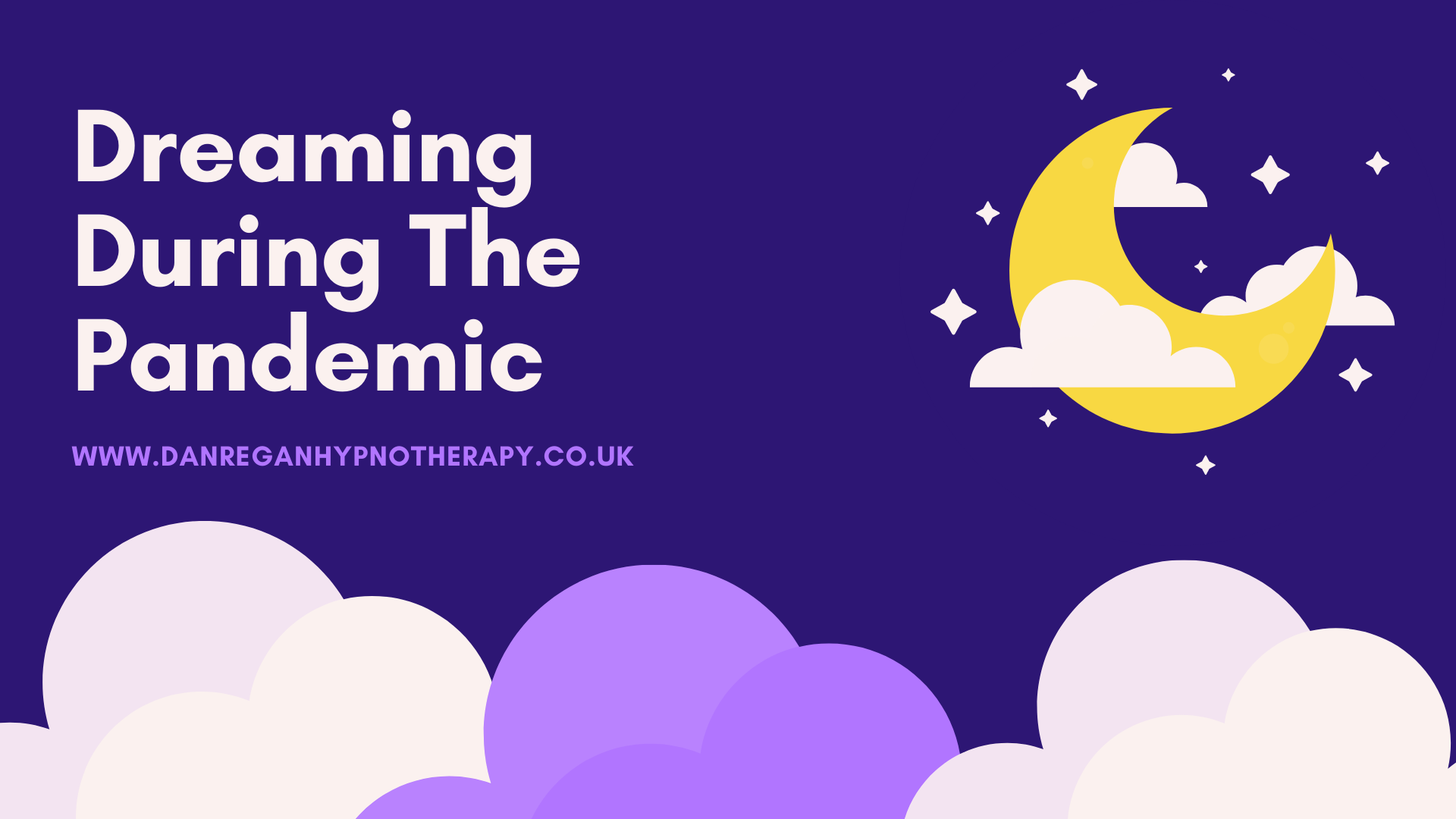
Coronavirus and Mental Health – Sleep Deprivation and Dreaming
As I’ve covered in several recent articles, the coronavirus pandemic has impacted upon the mental health and well-being of many people.
In their latest release, the Office For National Statistics (ONS), say that there has been a general increase in anxiety levels among the overall population, the most vulnerable in society, such as disabled adults, people with a health condition and who feel unsafe outside the home because of the coronavirus (COVID-19) pandemic, have experienced greater increases in anxiety levels. This builds upon their previous release where just over half of adults said it was affecting their well-being and nearly half of adults reported high levels of anxiety. Coronavirus and lockdown impacted on their mental health.
Whilst some may have found the easing of lockdown has resulted in an equivalent easing in anxiety, there are many, many people still struggling with anxiety, worry and fear associated with the coronavirus.
I’ve written before about some of the research and evidence around the link between the coronavirus and mental health (Covid-19 & Easing Lockdown: A Ticking Mental Health Timebomb?). In the earlier days of the pandemic, Shevlin et al (Anxiety, Depression, Traumatic Stress, and COVID-19 Related Anxiety in the UK General Population During the COVID-19 Pandemic, April 2020), investigated the prevalence of COVID-19 related anxiety, generalised anxiety, depression and trauma symptoms in a representative sample of the UK population during an early phase of the pandemic. They found that there were higher reported levels of anxiety, depression and trauma symptoms compared to previous population studies, but not dramatically so. Anxiety, depression and trauma symptoms were predicted by young age, presence of children in the home, and high estimates of personal risk. Anxiety and depression symptoms were also predicted by low income, loss of income, and pre-existing health conditions in self and others.
And, in relation to the USA, Twenge & Joiner (Mental distress among US adults during the COVID-19 pandemic, 2020) concluded that mental distress was considerably higher in a nationally representative sample of U.S. adults in late April 2020 compared to a nationally representative sample from 2018, providing “an early indication that serious mental illness has become strikingly more common during the COVID-19 pandemic“. And another study from the USA by Adams-Prassl et al (The Impact of the Coronavirus Lockdown on Mental Health. 2020) has suggested that the large negative effect on mental health has been entirely driven by the impact on women’s mental health. They suggest that the negative effect on women’s mental health cannot be explained by an increase in financial worries or childcare responsibilities.
I’ve worked with many people in recent weeks who have found that fears and worries over coronavirus have impacted upon their mental health, with increased anxiety and stress levels and worries about the future (such as catching the virus or losing employment).
Today, I’m covering the impact on your sleep (or sleep deprivation) and upon your dreaming when you do sleep.
Coronavirus and Sleep Deprivation
Many people who struggle with anxiety, stress and worry report an impact on their sleep. It may be struggling to switch off and relax enough to get to sleep, or you can find that you wake in the night and experience restless nights. It’s well accepted that sleep deprivation can then impact on decision making, mental functioning and your physical and mental health.
Falkingham et al (2020) noted that research into sleep deprivation during the coronavirus pandemic has been limited. Their study (“Sleepless in Lockdown”: unpacking differences in sleep loss during the coronavirus pandemic in the UK, 2020) aimed to explore the levels and social determinants of self-reported sleep loss among the general population during the Covid-19 pandemic in the UK, with a particular focus on ethnic and gender disparities.
Their study revealed robust evidence that sleep loss is affecting more people during the Covid-19 pandemic than previously, reflecting the fact that stress levels have risen due to anxieties about health, financial consequences, changes in social life and the daily routine. This was particularly amongst women and people from BAME heritage.
“The pandemic has widened the disparity of sleep deprivation across different groups, with women with young children, key workers and people of BAME heritage all experiencing difficulty in sleeping, which in turn may negatively affect mental and physical health and well-being“.
Sleep deprivation can impact on your mental health and has been associated with stress, worry and anxiety. Thus, by taking steps to manage and deal with your thoughts and feelings during the day (e.g coronavirus related stress and anxiety), the more likely sleep is to improve. In addition, it is possible to tackle sleep related issues through therapy, such as cognitive behavioural hypnotherapy.
In addition, many people during the coronavirus pandemic have reported an increase in the number of vivid dreams they are aware of, something that was considered in a further piece of research.
Coronavirus and Dreaming
Mota et al (Dreaming during the Covid-19 pandemic: Computational assessment of dream reports reveals mental suffering associated with negative feelings and contagion fear, 2020) noted how neuroscience and psychology agree that dreaming helps to cope with negative emotions and learn from experience. Their study looked at whether the coronavirus pandemic affected dreams and whether dreaming during the pandemic is linked to mental suffering.
Dreaming is now considered to be a memory mechanism to metabolize negative emotions and learn from experience, preparing individuals for the challenges in everyday life.
I’ve written before about the link between anxiety and dreaming (Anxiety and Dreaming – How Your Anxiety Impacts While You Sleep). In that article I talked about the research by Sikka, Pesonen & Revonsuo (Peace of mind and anxiety in the waking state are related to the affective content of dreams, 2018). Their research explored the relationship between waking well-being and dream affect (that is, your subjective emotions, moods and feelings). Following their analysis, the researchers have shown that peace of mind is related to positive dream affect, whereas symptoms of anxiety are related to negative dream affect.
As they found, “individuals with more symptoms of anxiety expressed more negative affect in subsequent dream reports and rated their dreams to contain more negative affect.” They noted how this finding was consistent with, and predicted by, the simulation theories of dreaming, especially the threat simulation theory, according to which perceived waking threats (increased anxiety during wakefulness) lead to increased threat simulation (and negative affect) in dreams. In contrast, they also found that waking well-being (life satisfaction, positive affect, well-being, peace of mind) and people with more peace of mind expressed more positive dream affect.
And so the research tends to demonstrate that our dominant thoughts and feelings during the day can then impact upon sleep and, in particular, dreaming.
The results from Mota et al tend to support this. Their results corroborated the hypothesis that pandemic dreams reflect mental suffering, fear of contagion, and important changes in daily habits.
“The results are in accord with the hypothesis that dreams from the pandemic period reflect negative emotions such as anger and sadness and similarity to “contamination” and “cleanness”. This seems to show in dream content all different sources of fear and frustration to this global challenge. Economic fears, social distancing from relatives, friends, and peers, and uncertainties on future planning are possible explanations for the above-reported changes on dream content and the increase of mental suffering.”
Daily concerns, mental health impacts and changes in habits and behaviours during the pandemic have filtered through into dreaming. Dreams reflect things being experienced during waking hours, such as anxiety, and can reflect mental health suffering. The research suggests that observing and reporting, dreams may help individuals to deal with challenges they are facing by flagging feelings such as anxiety and sadness.
As mentioned above, taking action to deal with coronavirus anxiety (and other stress and worry) can have a positive effect on your sleep. By discovering more of a sense of well-being and mental calmness, you can find yourself not only feeling better in the daytime but also sleeping better (with more pleasant dreams).
To your health and happiness,
Dan Regan
Hypnotherapy in Ely & Newmarket
Struggling with anxiety, stress, worry and fear and need some help? Find out how I can help with a Complimentary Hypnotherapy Strategy Session. Learn more here: Appointments
Find out what dozens of other people have said after their hypnotherapy sessions with Dan: Hypnotherapy Testimonials
And check out these powerful hypnosis downloads that can start helping you right away with anxiety, confidence and more: Hypnosis Downloads
References:
Adams-Prassl, A., Boneva, T., Golin, M. and Rauh, C., 2020. The Impact of the Coronavirus Lockdown on Mental Health: Evidence from the US (No. 2020-030).
Falkingham, J., Evandrou, M., Qin, M. and Vlachantoni, A., 2020. Sleepless in Lockdown: unpacking differences in sleep loss during the coronavirus pandemic in the UK. medRxiv.
Mota, N.B., Weissheimer, J., Ribeiro, M., De Paiva, M., D’Avila, J., Simabucuru, G., Chaves, M.F., Cecchi, L., Cirne, J., Cecchi, G. and Rodrigues, C., 2020. Dreaming during the Covid-19 pandemic: Computational assessment of dream reports reveals mental suffering associated with negative feelings and contagion fear. medRxiv.
Office For National Statistics, Personal and economic well-being in Great Britain: September 2020
Shevlin, M., McBride, O., Murphy, J., Miller, J.G., Hartman, T.K., Levita, L., Mason, L., Martinez, A.P., McKay, R., Stocks, T.V. and Bennett, K.M., 2020. Anxiety, Depression, Traumatic Stress, and COVID-19 Related Anxiety in the UK General Population During the COVID-19 Pandemic.
Sikka, P., Pesonen, H. and Revonsuo, A., 2018. Peace of mind and anxiety in the waking state are related to the affective content of dreams. Scientific reports, 8(1), pp.1-13.
Twenge, J. and Joiner, T., 2020. Mental distress among US adults during the COVID-19 pandemic.
Zhou, Y., MacGeorge, E.L. and Myrick, J.G., 2020. Mental health and its predictors during the early months of the CoViD-19 pandemic experience in the United States. International journal of environmental research and public health, 17(17), p.6315.





0 Comments